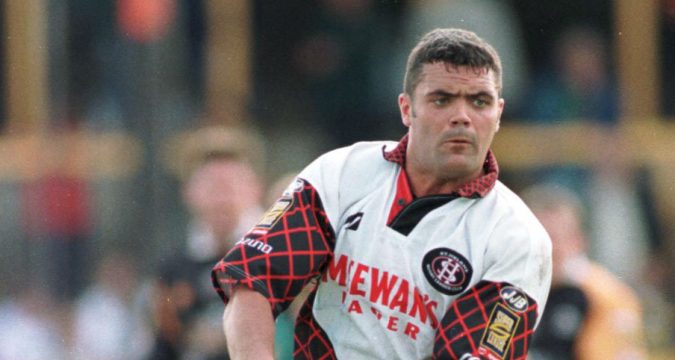 TOMMY MARTYN was one of the great players of the early Super League years, helping a brilliant and flamboyant St Helens team to numerous successes. In particular, he shone in the 2000 season, and was shortlisted to win the Man of Steel award, which eventually went to his halfback partner, Sean Long. He played in the World Cup later that year for an
TOMMY MARTYN was one of the great players of the early Super League years, helping a brilliant and flamboyant St Helens team to numerous successes. In particular, he shone in the 2000 season, and was shortlisted to win the Man of Steel award, which eventually went to his halfback partner, Sean Long. He played in the World Cup later that year for an Rugby League Heroes: Tommy Martyn
 TOMMY MARTYN was one of the great players of the early Super League years, helping a brilliant and flamboyant St Helens team to numerous successes. In particular, he shone in the 2000 season, and was shortlisted to win the Man of Steel award, which eventually went to his halfback partner, Sean Long. He played in the World Cup later that year for an
TOMMY MARTYN was one of the great players of the early Super League years, helping a brilliant and flamboyant St Helens team to numerous successes. In particular, he shone in the 2000 season, and was shortlisted to win the Man of Steel award, which eventually went to his halfback partner, Sean Long. He played in the World Cup later that year for an 